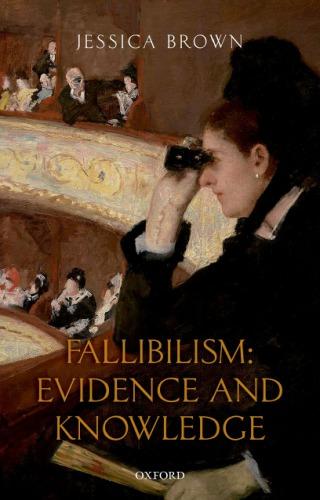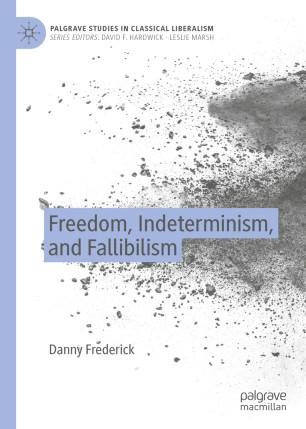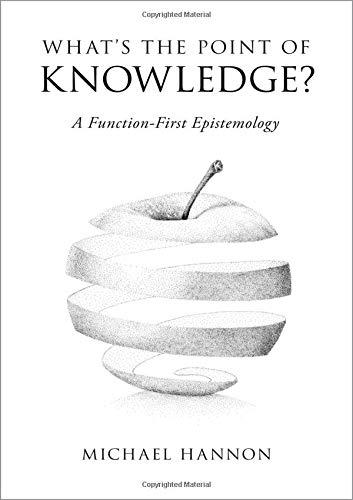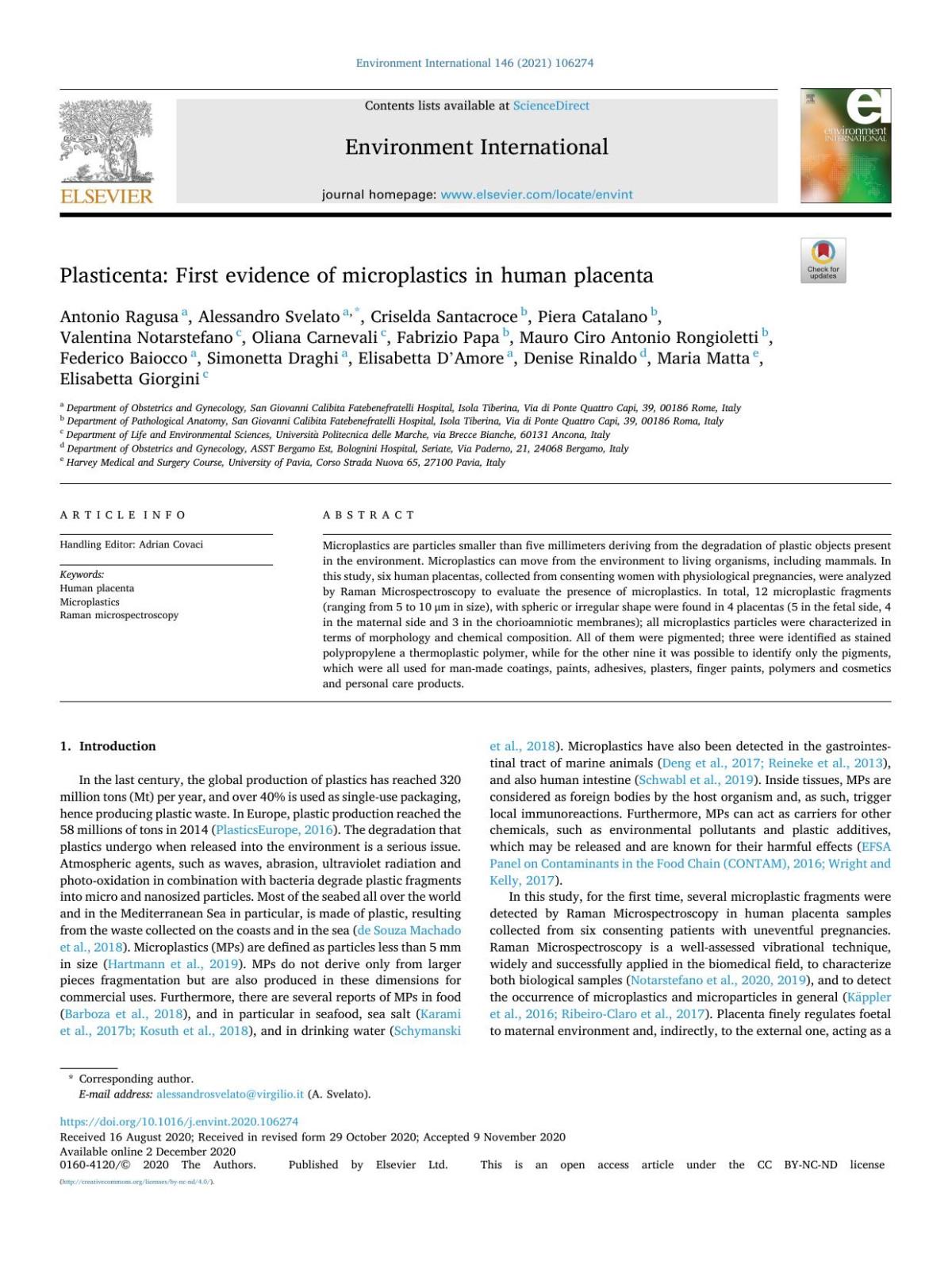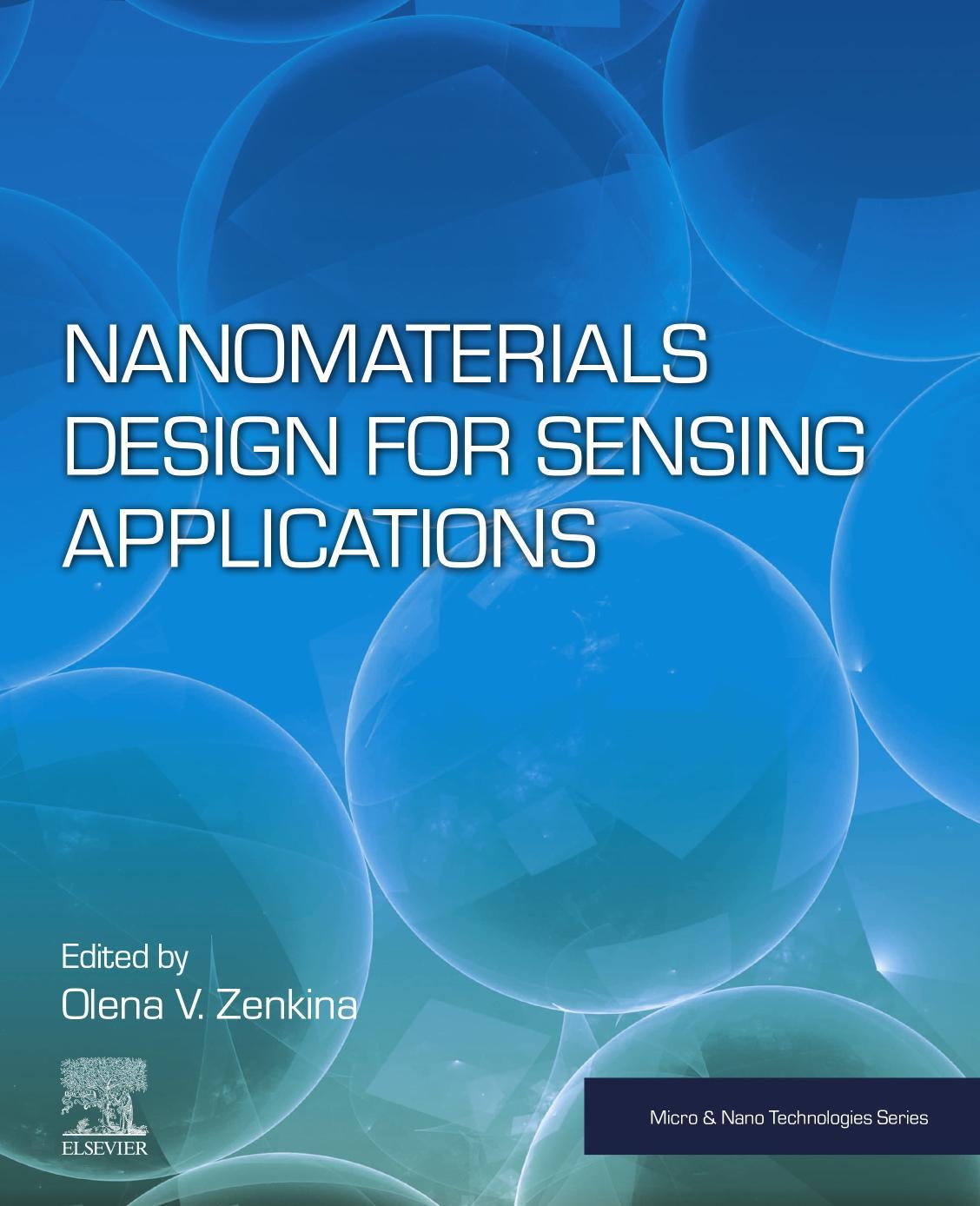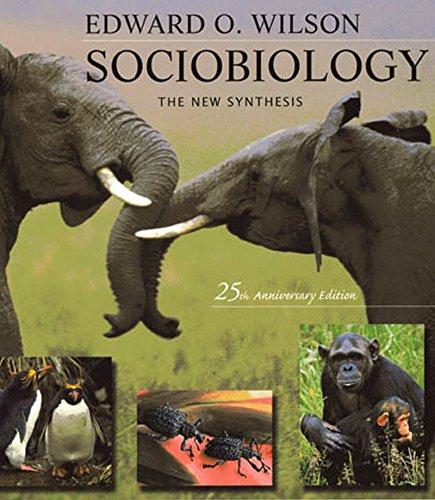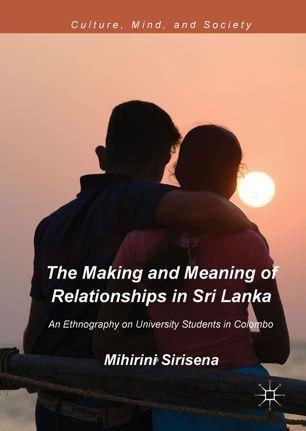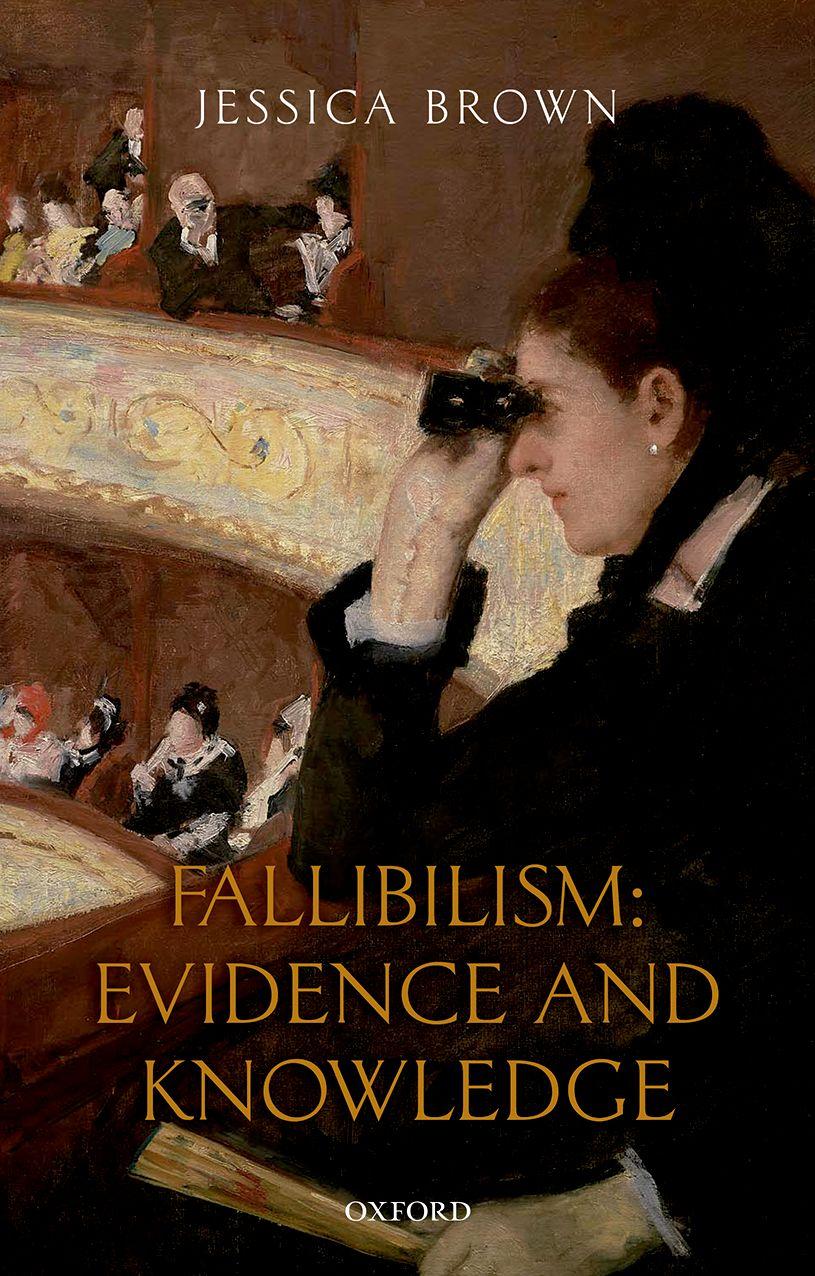Fallibilism: Evidenceand Knowledge
JessicaBrown
GreatClarendonStreet,Oxford,OX26DP, UnitedKingdom
OxfordUniversityPressisadepartmentoftheUniversityofOxford. ItfurtherstheUniversity’sobjectiveofexcellenceinresearch,scholarship, andeducationbypublishingworldwide.Oxfordisaregisteredtrademarkof OxfordUniversityPressintheUKandincertainothercountries
©JessicaBrown2018
Themoralrightsoftheauthorhavebeenasserted
FirstEditionpublishedin2018
Impression:1
Allrightsreserved.Nopartofthispublicationmaybereproduced,storedin aretrievalsystem,ortransmitted,inanyformorbyanymeans,withoutthe priorpermissioninwritingofOxfordUniversityPress,orasexpresslypermitted bylaw,bylicenceorundertermsagreedwiththeappropriatereprographics rightsorganization.Enquiriesconcerningreproductionoutsidethescopeofthe aboveshouldbesenttotheRightsDepartment,OxfordUniversityPress,atthe addressabove
Youmustnotcirculatethisworkinanyotherform andyoumustimposethissameconditiononanyacquirer
PublishedintheUnitedStatesofAmericabyOxfordUniversityPress 198MadisonAvenue,NewYork,NY10016,UnitedStatesofAmerica
BritishLibraryCataloguinginPublicationData
Dataavailable
LibraryofCongressControlNumber:2017955562
ISBN978–0–19–880177–1
Printedandboundby CPIGroup(UK)Ltd,Croydon,CR04YY
Formymother
Preface
Formuchofthetwentiethcentury,mostnon-scepticalepistemologists embracedafallibilistviewonwhichonecanknowapropositiononthe basisofevidencewhichdoesn’tguaranteethetruthoftheproposition known.However,morerecently,infallibilistwaysofthinkinghavebecome increasinglypopular.Moreover,manycontemporaryinfallibilistsinsist thattheycanavoidscepticism.Thisbookexaminestheprospectsfor non-scepticalinfallibilism.Inparticular,itfocusesonthepossibilityofa non-scepticalinfallibilismwhichrejectsanykindofshiftyviewofknowledge,whethercontextualist,relativist,orsubject-sensitiveinvariantist.
Theavailabilityofanon-shiftynon-scepticalinfallibilismseems todependonwhethersuchaviewcandefendagenerousenoughconceptionofevidencetoallowustohavetheknowledgeweordinarily takeourselvestohave.Inparticular,suchaninfallibilistneedstoallow thatourevidenceextendswellbeyondhowthingsseemtousinour experienceandincludesclaimsabouttheexternalworld.Thus,the infallibilismwhichisthefocusofthisbookiscommittedtoagenerous conceptionofevidence.Moreprecisely,Iarguethatitiscommittedto thefollowingclaimsaboutevidenceandevidentialsupport:ifoneknows thatp,thenpispartofone’sevidence,andpisevidenceforp.However, Iarguethattheseclaimsaboutevidenceandevidentialsupportare problematic.Furthermore,Iarguethatfallibilismcanovercomethe mostseriousobjectionslevelledatit.So,Iconcludethatepistemologists whoaimtoavoidbothscepticismandashiftyviewofknowledgeshould befallibilists.
Assomereadersmaybeinterestedindifferentpartsofthebook, inwhatfollowsIgiveabriefsketchofitscontents.(Amoredetailed descriptionofeachofthechapterscanbefoundattheendofchapter1.)
Chapter1setsthestageforthesubsequentdiscussion.Idistinguish betweenfallibilismandinfallibilism,andoutlinesomeoftherecent motivationsforinfallibilism.Iexplainthebook’sfocusonnon-shifty versionsofinfallibilismanddefendtheentailmentdefinitionofinfallibilismusedthroughoutthebook.
Inchapter2,Iconsidertheconceptionofevidenceandevidential supporttowhichanon-shiftyinfallibilistiscommittedifsheistoavoid scepticism.Iarguethatsheiscommittedtoafactiveconceptionof evidenceonwhichknowledgeissufficientforevidence.Further,Iargue thatsheiscommittedtothefollowingclaimaboutevidentialsupport:if oneknowsthatp,thenpispartofone’sevidenceforp.Thosealready convincedthatanon-shiftyinfallibilisthasthesecommitmentsmaywant toomitchapter2,andmovedirectlytochapters3and4inwhichIargue thattheseclaimsaboutevidenceandevidentialsupportareproblematic.
Chapter3criticizestheviewthatifoneknowsthatp,thenpispartof one ’sevidenceforp.Iarguethatthisviewcannotexplainwhyitis typicallyinfelicitoustociteapropositionwhichisevidenceasevidence foritself,whetherbyappealtopragmaticsoranerrortheory.
Chapter4criticizesafactiveviewofevidenceonwhichknowledgeis sufficientforevidence.Asiswell-known,thisviewhasthecounterintuitiveresultthatcertainpairsofsubjectswhoareintuitivelyequally justified,e.g.apersonandaBIV,arenotequallyjustified.However, defendersofthisviewofevidencehaveattemptedtoreplytothis objectionbydistinguishingwhetherabeliefisjustifiedfromwhetherit isblameless.Theyendorsetheknowledgeviewofjustificationaccording towhichabeliefisjustifiedifandonlyifknown.Iargueagainstthe knowledgeviewofjustificationthatithasdifficultyexplainingthepropositionalandgradedsensesofjustification.Inaddition,Iarguethatit failstoprovideanadequateaccountofblamelessbelief.
Afterarguingthatinfallibilismfacesseriousproblems,Iturntoconsider objectionslevelledatfallibilism.Inchapters5and6,Iconsiderthe objectionthatfallibilismunderminesclosureforknowledge.Inreply,it’ s beenarguedthatclosurefailsforreasonsquiteindependentlyofthe fallibilism–infallibilismdebate,specificallybecauseofdefeat.Ifthat’ s right,thenclosureprovidesnoreasontopreferinfallibilismoverfallibilism.However,theveryideaofdefeathascomeunderrecentattack.Thus, themostsubstantialcontributionofchapters5and6istoprovidean extendeddefenceofavarietyofkindsofdefeatincludingrebutting, undermining,andhigher-order.Thus,Iconcludethatclosureprovides noreasontofavourinfallibilismoverfallibilism.
Inchapter7,Iarguethatwhile,at firstsight,fallibilismmightseem tohaveparticulardifficultieswithpracticalreasoningandconcessive knowledgeattributions,infactfallibilismandinfallibilismfacesimilar
puzzlesandhavethesamebroadoptionsofresponse.Asaresult, practicalreasoningandconcessiveknowledgeattributionsdon’tprovide reasontorejectfallibilism.
Iconcludethatthoseofuswhowanttorejectscepticismwithina traditionalnon-shiftyviewofknowledgeshouldembracefallibilism.To avoidscepticism,anon-shiftyinfallibilistiscommittedtoproblematic claimsaboutevidenceandevidentialsupport.Bycontrast,objections tofallibilismoftenthoughtdevastatingcanbeanswered.Giventhe pre-theoreticalattractivenessoffallibilism,weshouldbefallibilists.
Ihavebeenthinkingabouttheissuesdiscussedinthisbookformany years.AFellowshipattheInstituteofAdvancedStudyatDurhamin 2016enabledmetobringthematerialtogetherintotheformofabook. ThankyoutotheInstituteanditsDirector,ProfessorVeronicaStrang, forthiswonderfulopportunity.
Ihavepresentedmaterialfromthebookinalargenumberofdifferent venues,includingtalksatthe2016Epistemeconference,SouthAfrica; the2016APACentralDivisionmeetinginChicago;the2015Epistemic NormsconferenceatLeuvenUniversity;the2015TempletonScience ofIntellectualHumilitysummerseminaratPasadena,andCapstone conferenceatCatalinaIsland;theworkshopsEvidenceandReasons, andRationalityandKnowledgeatGeneva(2014,2015);theEvidence workshopatKent(2014);theAimsandNormsworkshopinOslo(2013); togetherwithseminarsatDurham,Edinburgh,Oxford,Princeton, Rutgers,StAndrews,andSheffield.Iwouldliketothankallthephilosopherswhohaveprovidedusefulfeedbackonthesetalksaswellasdraft chapters.Therearetoomanytolist,butIwouldliketoparticularly mentionmycolleaguesatStAndrews,aswellasCohen,Comesana, Douven,Dutant,Engel,Gerken,Goldberg,Goldman,Graham,Dan Greco,Hawthorne,Kelp,Lackey,Lasonen-Aarnio,Littlejohn,McGrath, McGlynn,Nagel,Pryor,Rysiew,Schaffer,Schechter,Schellenberg, Schnurr,Schoenfield,Sillins,Simeon,MartinSmith,Sosa,Vogel,Weatherson,Weisberg,andWilliamson.Further,IwanttothankRamNeta andBaronReedwhoprovideddetailedcommentsonthedraftofthe wholebook.
Severalchaptersofthebookdrawonpreviouslypublishedwork.In particular,thethirdchapterdrawssubstantiallyontwoofmypreviously publishedarticles(Brown, “Infallibilism,evidenceandpragmatics” , Analysis 2013;andBrown, “Evidenceandepistemicevaluation” , Oxford
StudiesinEpistemology volume5,2015).Thefourthchapteremploys somematerialfrommy2017articlein Episteme , “Blameandwrongdoing”.The firsthalfofchapter6drawsheavilyonmy2008, Noûs article, “Subject-SensitiveInvariantismandtheKnowledgeNormforPractical Reasoning”.Iwanttothanktheeditorsofthesejournalsforpermission toreusematerialfromthesearticlesinthisbook.
Finally,thankstoPeterMomtchiloffatOxfordUniversityPressfor allhisefficiency,goodadvice,andsupport.
1 HumanFallibilityand FallibilismaboutKnowledge
1.1Introduction
Thischaptersetsthescenefortherestofthebook.Idistinguishfallibilismandinfallibilism,andoutlinethemainmotivationsforeachposition (sections1.2and1.3).Iexplainhowcontemporaryinfallibilistsargue thattheycanavoidscepticism,eitherbyappealtoashiftyviewofknowledgesuchascontextualism,and/orbyappealtoagenerousconceptionof evidence.Iexplainwhythebookfocusesonthesecondoption the availabilityofanon-scepticalinfallibilismwhichrejectsashiftyviewof knowledgeandacceptsagenerousconceptionofevidence(section1.4). Ialsodefendtheentailmentdefinitionofinfallibilismusedinthebook fromalternativeaccounts(section1.5).Attheend,Isketchthecontentsof theremainingchapters.
1.2FallibilismandInfallibilism
Weclaimtoknowmuchabouttheworld,includingclaimsabout materialobjectsaroundus,theexistenceofotherpeoplewithvarious mentalstates,claimsaboutthefuture,andclaimsaboutthepast.But thereoftenseemstobeagapbetweenourevidenceandwhat’sknownin thesensethatourevidencedoesn’tguaranteethetruthofwhatisknown. Forexample,evenifIcanknowfromtheweatherforecastthattomorrow willbesunny,thattheforecastsaysitwillbesunnydoesnotguarantee thatitwillbesunnytomorrow.
Scepticsattempttoexploittheapparentgapbetweenourevidenceand whatweclaimtoknowtounderminekeytypesofknowledge,whether abouttheexternalworld,otherminds,thepast,orthefuture.For
example,theyarguethatarecentlyenvatted 1 brain(orBIV)couldhave justthesameexperiencesasapersoneventhoughtheBIV’sexperiences radicallymisrepresentitsenvironment.So,thatI’mnowhavinganexperienceasoftypingonacomputerdoesnotguaranteethatIamtypingon acomputer.Instead,ImightbeahandlessBIVmerelybeingstimulated tohavesuchexperiences.Thus,ifone’sperceptualevidencejustconsists inclaimsabouthowthingsseemtooneinexperience,thenhowdoes oneknowthatone’sapersonratherthanaBIV?
Whilescepticshopetousetheapparentgapbetweenevidenceand whatweclaimtoknowforscepticalends,mostcontemporaryepistemologistsdrawadifferentconclusion.Theyclaimthatonecanknoweven ifonelacksevidencewhichguaranteesthetruthofwhat’sknown.They embrace ‘fallibilism’:onecanknowthatpeventhoughone’sevidence doesnotguaranteethetruthofp.Bycontrast, ‘infallibilism’ istheview thatonecanknowthatponlyifone’sevidenceguaranteesthetruthof p.Fallibilismwasthedefaultviewinepistemologyformuchofthe twentiethcentury.For,manythoughtthatendorsingfallibilismwasthe onlywaytoavoidscepticismaboutknowledge.Further,fallibilismseems initiallyplausible.Formanyimportantkindsofknowledge,what’sintuitivelyone’sevidencedoesnotguaranteethetruthofwhatoneknows.
Despitethehistoricpopularityoffallibilism,infallibilismisundergoing acontemporaryrenaissance,withcharacteristicallyinfallibilistideasbeing defendedbyarangeofphilosophers.Thereareseveralmajorsourcesof thiscurrentinterestininfallibilism.Onesourceiscontextualismabout knowledge-ascriptions,especiallythatinspiredbytheworkofDavid Lewis.Lewis(1996)startshisexplicationofhiscontextualistviewby saying, ‘Iproposetotaketheinfallibilityofknowledgeasmystarting point.’ Heexplicitlymotivateshisversionofcontextualismasawayto avoidwhatheseesasthetwinperilsoffallibilismandscepticism,saying: Betterfallibilismthanscepticism;butitwouldbebetterstilltododgethechoice. Ithinkwecan.Wewillbealarminglyclosetotherock[offallibilism],andalso alarminglyclosetothewhirlpool[ofskepticism],butifwesteerwithcare,we can justbarely escapeboth.(550)2
1 Throughoutthebook,Iassumethatthebrainhasbeenrecentlyenvattedasthisletsus setasidetheworrythat,duetocontentexternalism,apersonandanalwaysenvattedbrain wouldhavedifferentmentalstatesinvirtueoftheirrelationstodifferentenvironments. Ileavethisassumptionimplicitintherestofthebook.
2 Lewis-stylecontextualismisdefendedin, interalia,Neta(2011),Schaffer(2005),and Blome-Tillmann(2009).Neta(2011)endorsesaformofinfallibilismonwhich ‘forSto
Asecondmajorsourceofcontemporaryinfallibilistclaimsistheincreasingpopularityofgenerousconceptionsofevidenceonwhichone’ s evidencedoesn’tonlyincludeclaimsaboutone’sexperiences,butalso claimsabouttheexternalworld.Suchagenerousconceptionofevidence makesiteasiertobeaninfallibilistandyetavoidscepticism.Suchgenerous conceptionsofevidencehavebeendefendedbyarangeofphilosophers includingepistemologicaldisjunctivists,aswellasthosewhoendorse Williamson’sidentificationofone’sevidenceandone’sknowledge.
Disjunctivistsaboutexperienceholdthatthestateofitslookingtoone asifpmaybeconstitutedeitherbyone’sseeingthatporit’smerely appearingtooneasifp(e.g.Snowden1980andMcDowell1982).3
McDowellarguesthatsuchadisjunctivistapproachcanallowfora characteristicallyinfallibilistapproachtoknowledge.Hecriticizeswhat hecallsa ‘criterialview’ which ‘envisage[s]ascribingknowledgeonthe strengthofsomethingcompatiblewiththefalsityofwhatissupposedly known’.Hecomments, ‘itisaseriousquestionwhetherwecanunderstandhowitcanbeknowledgethatisproperlysoascribed’ (1982:372). Aftercriticizingthewaysofthinkingwhichhesuggestsleadtothe criterialview,hesuggestsanalternativeconceptionofexperienceon which,whenthingsaregoingwell, ‘theappearancethatispresentedto one isamatterofthefactitselfbeingdisclosedtotheexperiencer’.So understood,whenthingsaregoingwell,thereisnogapbetweenthe sensoryappearanceandthefactknownfortheappearanceconsistsin therelevantfactbeingmadeperceptuallymanifesttoone(386–7).Thus, McDowellmotivateshisdisjunctivismaboutappearancesbyappealtoa recognizablyinfallibilistwayofthinkingofknowledge.
knowthatp,SmusthavereasonsforbelievingthatpwhicharesuchthatScanknow,by reflectionalone,thatshehasthosereasons,andthatshecouldnotpossiblyhavethose reasonsifpisnottrue’ (658).Schaffer(2005)describeshiscontrastivistformofarelevant alternativesstyleofcontextualismas ‘restrictedinfallibilism’.Onhiscontrastiveapproach, theapparentlybinary ‘Sknowsthatp’ isimplicitlyofthecontrastiveform:Sknowsthatp ratherthanq.Hesays ‘Sknowsthatpratherthanqifandonlyif1)p,2)Shasproofthatp ratherthanq,and3)Siscertainthatpratherthanq,onthebasisof2)’.Thisis ‘infallibilist insofarasitrequiresproof,whichisconclusiveevidence,evidencethatcouldnotpossibly obtainwithoutpbeingtrue.Butitisrestrictedinsofarasthespaceofpossibilitiesopento disproofisrestrictedto:{p}U{q}’ (255).
3 WhileSnowden(1980)alsodefendsadisjunctiveconceptionofexperience,hismain concernseemstobewiththenatureofperception,ratherthanwithepistemological concerns.Seetheusefuldistinctionbetweenexperientialandepistemologicaldisjunctivism inHaddockandMacPherson2008.
Williamson(2000)providesadifferentwayofdefendingagenerous conceptionofevidence,namelybyhisequationofevidenceandknowledge.WhileWilliamsondoesnotmotivatehisviewofevidencebyappeal toinfallibilism,aninfallibilistapproachtoknowledgeseemstobemade availablebyhisequationofevidenceandknowledge.Ifone’sevidencejust isone’sknowledge,thenwheneveroneknowsthatp,pispartofone’ s evidence.So,ifoneknowsthatp,one’sevidenceentailsthatpandgives itprobability1.
Beforeexaminingsomeofthemotivationsforthisinfallibilistrenaissance,it’susefultosayalittlemoreabouthowtodefinefallibilismand infallibilism.Sofar,I’veroughlydescribedthesepositionsintermsof whethertheyholdthatknowledgerequiresevidencewhichguarantees thetruthofwhat’sknown.However,ifwewanttotightenupthisinformal notionofa ‘guarantee’ oftruth,weneedtotakeastandontheontologyof evidence.Ifoneacceptsthewidespreadviewthatevidenceispropositional, thenonecanunderstandthenotionofaguaranteeintermsofentailment. Thus,wecanunderstandtheinfallibilistasholdingthatoneknowsthatp onlyifone’sevidenceentailsthatp.Bycontrast,ifevidenceneednotbe propositional,wecannotunderstandinfallibilismintermsofarelation, suchasentailment,thatobtainsonlybetweenpropositions.Thus,toget beyondtheroughintuitivestatementofthedebate,weneedtotakeastand ontheontologyofevidence.Iwillbeassumingthroughoutthebookthat evidenceispropositional,andIwillformulatethedebatebyappealtothe notionofentailment.4 Thus,Iwilltakeitthattheinfallibilistholds,and thefallibilistdenies,thatknowingthatprequiresevidencewhichentails thatp.WhileIformulateinfallibilismasanentailmentclaimformost ofthebook,inthisintroductorychapterIsometimestalkofwhether knowledgethatprequiresevidencethatrulesouteverynot-ppossibilityto describetheviewsofsomeinfallibilistswhodenythatevidenceispropositional,suchasLewis.Inaddition,insection1.5,IexplainwhyIprefer theentailmentformulationofthedebatetosomeotherrivalformulations.
4 Forsomeinfluentialargumentsthatevidenceispropositional,seeWilliamson2000. ExamplesoftheentailmentdefinitionofinfallibilismcanbefoundinFeldman1981:266–7, Cohen1988:91,Pryor2000:520,Reed2002:144,ConeeandFeldman2004:chapter12, Stanley2005a:127,DoughertyandRysiew2009,andLittlejohn2011:603.Othersmention theentailmentviewbeforegoingontosuggestalternativedefinitionsofinfallibilism includingHetherington1999,Reed2002,andFantlandMcGrath2009.
Inthenextsection(1.3),Isketchsomeofthereasonsrecentlygiven forinfallibilism,beforeexamininghowcontemporaryversionsofinfallibilismclaimtoavoidscepticism.Mychoiceofmotivationsforinfallibilism isselectiveanddesignedtofocusonthosemotiveswhichareavailable withinthedominantexternalistapproachtoepistemologywhichholds thattheepistemicstatusofabeliefcandependonfactorsofwhichoneis ignorant,suchasthereliabilityoftheprocessbywhichthebeliefwas formed,ortheabsenceofGettierfactors.5
1.3MotivationsforInfallibilism
Infallibilismisoftenmotivatedbythethoughtthatthereseemssomething contradictoryorproblematicinafallibilistconceptionofknowledge.It seemsproblematictosimultaneouslyclaimknowledgeandadmitthe possibilityoferror.Forinstance,considertheinfelicityofthefollowing statements: ‘IknowthatIhavehandsbutImightbeahandlessbrainin avat’ ,or ‘AnneknowsthatBeatricestolethecookies,butitmight insteadhavebeenChristina’.Theinfelicityofsuchso-calledconcessive knowledgeattributions6 seemstoposeproblemsforthefallibilist.Forit mightbethoughtthatiffallibilismistrue,thenconcessiveknowledge attributionswouldbeliterallytrue.Afterall,ifitispossibletoknowthatp eventhoughone’sevidenceiscompatiblewithvariousnot-ppossibilities thensurelyitshouldbetruetoclaimknowledgeandsimultaneouslyadmit thepossibilityoferror?Forinstance,Lewis(1996)says, ‘Ifyouarea contentedfallibilist,Iimploreyoutobehonest,benaive,hearitafresh. “Heknows,buthasnoteliminatedallpossibilitiesoferror.” Evenifyou’ ve
5 Thus,I’msettingasidemotivationsforinfallibilismwhicharisewithinaninternalist approach,includingcertainmotivationsgivenbyMcDowellandNeta.Inrejectingthe fallibilistideathatonemighttrulyascribeknowledgeonthestrengthofsomething compatiblewiththefalsityofwhatisknown,McDowellsays, ‘ one ’sepistemicstanding onsomequestioncannotbeintelligiblyconstituted,eveninpart,bymattersblankly externaltohowitiswithonesubjectively.Forhowcouldsuchmattersbeotherthan beyondone’sken?Andhowcouldmattersbeyondone’skenmakeanydifferencetoone’ s epistemicstanding?’ (1982:390).However,suchexpressionsofinternalismwillhavelittle purchaseonthosealreadypersuadedofanexternalistapproach.Neta(2011)arguesfora formofinfallibilismfromwhathedescribesasthe ‘Cartesian’ claimthatSknowsthatp onlyifShasanepistemicreasonrforbelievingthatpsuchthatScanknowbyreflection alonethatshehasrandthatrisareasonforbelievingthatp(658).Mostexternalistswould rejecttheCartesianpremiseofthisargument.
6 ThistermisfromRysiew2001.
numbedyourears,doesn’tthisovert,explicitfallibilism still soundwrong?’ (550).7 Sotheinfelicityofconcessiveknowledgeattributionshasbeen takentobeevidenceforinfallibilism.
Inadditiontotheconcernaboutconcessiveknowledgeattributions, fallibilismfacestheso-calledthresholdproblem.Accordingtoinfallibilism,onecanknowthatponlyifone’sevidenceentailsthatp.Ifone’ s evidenceentailsthatp,thentheconditionalprobabilityofponone’ s evidenceis1.Thus,theinfallibilistholdsthatonecanknowthatponlyif theprobabilityofponone’sevidenceis1.Bycontrast,thefallibilistholds thatonecanknowthatpevenifone’sevidencedoesnotentailthatpand eveniftheprobabilityofponone’sevidenceislessthan1.However, thefallibilistwouldholdthatonecannotknowthatpunlesspishighly likelyonone’sevidence.So,thefallibilistpresumablyholdsathreshold viewaccordingtowhichonecanknowthatponlyifitsprobabilityon one ’sevidenceexceedssomethreshold,t,wherethatthresholdishigh butlessthan1.Butthisraisesthequestionofwherethethresholdisset. Forinstance,supposethatthefallibilistsuggeststhatthethresholdis 0.92.Anysuchchoiceseemsarbitrary:whynot0.93or0.91ratherthan 0.92?Bonjour(2002)comments, ‘itissimplyunclearwhatsortofbasis orrationaletheremightbefor fixingthislevelofjustificationinanonarbitraryway’ (43).8
Afurtherworryisthatwhereverthethresholdisset,ifitislessthan1, thencertainnon-knowledgebeliefscanmeetthethreshold.Forinstance, manyholdthatonecannotknowthatone’slotteryticketisaloserbefore thedrawisannouncedmerelyonthebasisoftheprobabilities.Butby increasingthesizeofthelotteryonecanmaketheprobabilitythatone’ s ticketisaloserashighaspossible,shortof1.So,thebeliefthatone’ s ticketisaloserwouldmeetanyplausiblethresholdshortof1.
Bycontrastwiththefallibilist,theinfallibilistmightseemtohave anadvantage.Theinfallibilist’sviewthatknowledgerequiresprobability
7 Somefallibilistsagreethatfallibilismhastheupshotthatconcessiveknowledge attributionsareliterallytruebutattempttoofferanexplanationofwhytheyarenonetheless infelicitous(e.g.DoughertyandRysiew2009,andFantlandMcGrath2009).Othersargue thatfallibilismdoesnothavethisupshot(seeStanley2005a).Seechapter7forfurther discussion.
8 Somefallibilistsappealtopragmaticencroachmenttoprovideanon-arbitraryaccount ofthethreshold(e.g.FantlandMcGrath2009).However,Isetasideshiftyviewsincluding pragmaticencroachmentinsection1.4below.
1mightseemlessopentothechargeofbeingarbitrary.1seemstobea naturalratherthananarbitrarythreshold.Furthermore,appealtoprobability1canbeusedtoexplainwhyonelacksknowledgethatone’ s lotteryticketisaloserbeforethedrawhasbeenannounced.Inaddition, ifknowledgerequiresprobability1thenthismayhelptoexplainthe valueofknowledge.Ifphasprobability1onone’sevidence,thennot-p hasprobability0.Thus,theinfallibilistcanexplainthevalueofknowing thatpasconsistinginthefactthatitrequiresevidencewhichrulesout thepossibilitythatnot-p.Aswewillsee,theinfallibilistmightappealto thefactthatknowledgehasprobability1toexplainwhatshetakestobea furtherimportantpropertyofknowledge,namelythatitisclosedacross knownimplication.
Theideathatknowledgeisclosedacrossknownimplicationcanbe initiallyformulatedastheideathatifoneknowseachofp1-n,andcomes tobelievethatqbycompetentlydeducingqfromp1-n,thenoneknows thatq.Closureforknowledgehasseemedveryattractivetomany.9 For,it mightsimplyseemtobeaformalizationoftheideathatwecangain knowledgebydeductiveinference.Butfallibilismseemstothreatenthe closureofknowledgeacrossdeductiveinference.Imaginethat,aswe’ ve supposed,thefallibilistendorsesthethresholdconceptiononwhich knowledgethatprequiresthattheprobabilityofponone’sevidence exceedsathreshold,t,wheretislessthan1.Asiswellknown,this thresholdconceptionmaygiverisetothefailureofclosureforknowledge. Foronecouldmeetthethresholdconditionforknowingthepremises ofsomevalidinference,cometobelievetheconclusionbycompetent deductionfromthepremises,andyetnotmeetthethresholdcondition forknowingtheconclusion.Althoughforeachpremiseindividually considered,thechanceoferroriscompatiblewithone’sknowingit,the chanceofriskaccumulatesacrosstheinferencesothatthechanceistoo greatforonetoknowtheconclusion.Asaresult,onemightknowthe premisesofthededuction,cometobelievetheconclusionbycompetent deductionfromthepremises,andyetnotknowtheconclusion.
9 Recentdefendersinclude, interalia,Cohen1988,DeRose1995,Kaplan1998, Williamson2000,Hawthorne2004and2005,andSchaffer2004.Well-knownopponents includesensitivitytheorists(e.g.Nozick1981),somerelevantalternativestheorists(e.g. Dretske1970),andthosedefendingathresholdconditionontherelevantepistemicstatus (e.g.Christensen2004).
Thepointcanbevividlyillustratedwiththeprefaceparadox.10 Supposethateachpremiseofanargumentcorrespondstoaclaimmadeina verylargebookofhistoryandtheconclusiondeducedistheconjunction ofalltheseindividualclaims.Mostactualbooksofhistorycontainafew errors.However,let’ssupposethattheauthorofthisparticularbook doesknoweachoftheclaimscontainedwithinit.So,shemeetsthe fallibilist’sthresholdconditionforknowingeachpremise.Nonetheless, evenifshededucesfromtheseclaimstheconclusionwhichistheir conjunction,shedoesnotmeetthefallibilist’sthresholdconditionfor knowingtheconclusionfor,intuitively,theriskoferroristoogreat. Afterall,sheiswellacquaintedwiththefactthatmosthistorybooks containafewerrors.Indeed,everyotherbookshehaseverreadhas containedafewerrors,andshehasnoreasontothinkthatshe’ san exceptiontothisgeneralrule.So,sheshouldthinkthatit’sverylikely thatthereissomeerrorinherbook.Thus,evenifshedoesinfactknow eachoftheclaimsinthebook,shedoesn’tknowtheconjunctionof theseclaims.
Sincetheproblemfallibilismfacesinaccommodatingclosurefor knowledgearisesfromallowingthatthethresholdofprobability requiredforknowledgemaybelessthan1,infallibilismseemstoavoid theproblem.Supposethatoneknowsthepremisesofavalidargument andcomestobelievetheconclusionbycompetentdeductionfrom thesepremises.Assuminginfallibilism,ifoneknowsthepremisesof theargument,eachofthesepremiseshasprobability1onone’sevidence. Giventhis,andthefurtherfactthatthepremisestakentogetherentailthe conclusion,itfollowsthattheconclusionhasprobability1onone’ s evidence.Thus,ontheinfallibilistview,therecannotbeacasein whichoneknowsthepremisesofavalidinferenceandyettheconclusion ofthatinferencefailstohaveprobability1onone’sevidence.Thus,
10 Analternativeillustrationisprovidedbythelotteryparadox.Supposethereisalarge lotterysuchthatforeachticketindividuallyconsidered,theprobabilityontheevidencethat itwillloseexceedsthethreshold,t.Nonetheless,theprobabilityontheevidencethatevery ticketwillloseislessthantherequiredthreshold.Ifthefallibilistsupposesthatanytrue beliefmeetingthethresholdconditionisknowledge,thenthisprovidesacounterexampleto closureforknowledge.However,theprefaceisamoreusefulexampleofclosurefailure sinceitisarguablethatonedoesnotknowthepremisesofthelotteryparadox.Indeed,a fallibilistcanacceptthisifshedeniesthatitissufficientforatruebelieftobeknowledgethat itmeetsthethresholdcondition.
unlikefallibilism,theprobabilisticconditionimposedbyinfallibilism aboutknowledgeisclosedacrossknownimplication.11
Thefactthatfallibilismallowsonetoknowwithouthavingevidence whichentailswhatisknownisalsorelevanttodebatesaboutpractical reasoning.It’sbecomerecentlypopulartoarguethatknowledgeisthe normofpracticalreasoninginthesensethatoneisinagoodenough epistemicpositiontorelyonpinone’spracticalreasoningifandonlyif oneknowsthatp(e.g.HawthorneandStanley2008).But,accordingto fallibilism,knowingthatpiscompatiblewithp’shavingaprobabilityon one ’sevidenceoflessthan1.But,asthestakesinvolvedinactingonp rise,thepossibilitythatnot-pisofincreasingimportance.Atsomelevel ofrisk,oneshouldnolongeractonpevenifonestillknowsthatp.So,it canseemthatfallibilismconflictswiththeknowledgenormforpractical reasoning.
Inlaterchapters,Idiscussindetailhowthefallibilistshouldrespond tothesechallengesconcerningconcessiveknowledgeattributions,closure,practicalreasoning,andthethresholdproblem.But,fornow,what’ s importanttonoteisthattheseissuesmaybethoughttomotivatean infallibilistconceptionofknowledge.Further,recentdevelopmentsin epistemologyseemtooffertheinfallibilistawaytoavoidscepticism. Takentogetherwiththemotivationsforinfallibilism,thismightseemto constituteastrongcaseforinfallibilism.So,letusnowexaminethemain infallibiliststrategiesforavoidingscepticism.
1.4InfallibilistStrategiesforAvoiding Scepticism
Aninitialintuitiveworrythattheinfallibilistmayhavedifficultiesavoidingscepticismmightarisefromthethoughtthathumansareobviously falliblecreatures.Thereismuchweareignorantof,andperhapscannot possiblyunderstandgivenourlimitedcognitiveandconceptualcapacities. Weoftenmakemistakesandhavefalsebeliefs.Thatwehavefalsebeliefsis unsurprisingwhenwereflectonthefallibilityofsuchprocessesofbeliefformationasformingbeliefsabouttheworldviaperceptualexperience,
11 Thattheprobabilisticconditioninfallibilistsplaceonknowledgedoesnotgenerate closurefailuredoesnotshowthatnothingelsegeneratesclosurefailureontheinfallibilist view.Idiscussthisissueinchapter5,andarguethatclosurefailsduetodefeat.
testimony,orapparentmemory.For,thatonehasaperceptualexperience asofpdoesnotentailthatp,thatoneapparentlyremembersthatpdoes notentailthatp,andthatsomeonetestifiesthatpdoesnotentailthatp. Howeverinfallibilismiscompatiblewithourobviousfallibility.The infallibilisthasnoneedtodenythatthereismuchweareignorantof,or thatweoftenhavefalsebeliefs.Herclaimconcernsthepositionof someonewhoknows,notsomeonewholacksknowledgeeitherthrough lackingbelief,orfailingtobelievethetruth.Furthermore,sheneedn’t denythat,oncertainwaysoftypingbelief-formingprocesses,theyare fallible.Forexample,sheshouldacceptthatbeliefsformedviaapparent memory,apparentperception,ortestimonycanleadtofalsebelief. Whethershecanarguethatthereareotherwaysoftypingbelief-forming processesonwhichtheyarenotfallibleisafurtherquestionthatwewill examinelaterinchapter2.But,fornow,themainpointtonoteissimply thatthereisnoobviouscontradictionbetweentheinfallibilistclaim aboutthestrengthoftherelationbetweenevidenceandknowledge whenonehasknowledge,andthefactthathumansoftenfailtoknow thetruth,andthatonsomewaysoftypinghumanbelief-forming processes,theycanleadtofalsehood.
Whileinfallibilismisnotinconsistentwiththeobviousfactsofhuman fallibility,amoreseriousworryiswhethertheinfallibilistcanclosethe apparentgapbetweenourevidenceandwhatweknow.Forinstance,that onehasanexperienceasofhandsdoesnotentailthatonehashands; thatoneapparentlyremembersthatpdoesnotentailthatp;andthat someonetestifiesthatpdoesnotentailthatp.Sothechallengeforthe infallibilististoshowhowwecanhavethekindofknowledgewe ordinarilytakeourselvestohaveevenontheinfallibilistconceptionon whichknowingthatprequireshavingevidencethatentailsthatp.
Contemporaryepistemologyoffersinfallibiliststwomainstrategies totrytoavoidscepticismaboutknowledgeevenwhileholdingthat knowledgethatprequiresevidencerulingouteverynot-ppossibility. Theycouldemployeitherashiftyviewaboutwhatitistohaveevidence whichrulesoutallnot-ppossibilitiesoramoregenerousviewabout whatone’sevidenceis.Totheextentthatrulingoutallnot-ppossibilities isashiftymatter,orone’sevidenceisricher,theeasieritistoshowthat infallibilistsneednotbesceptics.Inowconsidereachofthesetwo strategiesinturn,arguingthattheinfallibilistisbestadvisedtoset asidethe firstshiftystrategy,tofocusonthesecondstrategyofbeing
generousabouttheevidence.Ofcourse,notallofthosedefendingeither ashiftyaccountofknowledgeoragenerousconceptionofevidence wouldregardthemselvesasinfallibilists,orwanttousetheseviewsto defendinfallibilism.Nevertheless,bothshiftyaccountsofknowledge andgenerousaccountsofevidenceofferapotentialwaytodefend non-scepticalinfallibilism.
Accordingtocertainshiftyviewsofknowledge,itistrueforasubject toclaimknowledgeonlyifshehasevidencewhicheliminatesorrules outeverynot-ppossibility.Giventherequirementthataknowercan eliminateeverynot-ppossibility,theviewcouldbeconsideredtobe broadlyinfallibilist.12 Yet,defendersoftheseshiftyviewsallowthatone cantrulyclaimtoknowthatpevenifone’sevidencedoesn’truleout everylogicallypossiblealternative.Instead,therequirementismerely thatonerulesouteverynot-ppossibilitythatisrelevant,wheretheseare asubsetofthelogicallypossiblealternatives.13 Whileinprinciplesuch ashiftyinfallibilistviewcouldtaketheformofanyofcontextualism, relativism,orpragmaticencroachment,it’sbeendevelopedinmostdetail forcontextualism.14 So,I’llfocusonhowcontextualismofferstheinfallibilistawaytoavoidscepticism.
Lewis(1996)arguesthataknowledgeascriptionoftheform ‘Sknows thatp’ istrueifandonlyifS’sevidenceeliminateseverypossibilityin whichnot-p.However,itturnsoutthatwhatcountsasapossibility dependsonthecontext.Asaresult,eventhoughLewisidentifiesone ’ s evidencewithone’sexperiences,hiscontextualismallowshimtoclaim
12 HereI’mtakingamoreinformalnotionofinfallibilismthantheentailmentview whichwillbethebook’sfocus.For,defendersofshiftyviewsdon’trequireevidenceto eliminateeverylogicallypossiblealternative,andsomerejectpropositionalviewsof evidence.
13 Bycontrast,invariantistversionsofrelevantalternativestheoriesdonotseemproperlytermedinfallibilistfortheyallowthatinasinglecontextitmaybetruetosay ‘Iknow thatIhavehandsalthoughIcannotruleoutthepossibilitythatI’maBIV’.OnLewis’ s contextualism,suchstatementscannotbetruesinceonceapossibilityismentioned,itis relevantandsounderminesthetruthoftherelevantknowledgeascription.
14 Theseviewsdifferbothoverwhether ‘knows’ alwaysexpressesthesamepropertyin differentcontextsandoverwhatdetermineswhichpossibilitiesarerelevant.Contextualists claimthat ‘knows’ expressesdifferentpropertiesindifferentconversationalcontexts;on relativismandpragmaticencroachment, ‘knows’ expressesthesamepropertyindifferent conversationalcontexts.Forthecontextualist,it’stheconversationalcontextofthose attributingknowledgethatdetermineswhichpossibilitiesarerelevant;fortherelativist,it isthestandardsofthoseassessingknowledgeattributions;andonpragmaticencroachment views,itisthestakesforthesubjectoftheknowledgeattribution.
that,ordinarily,onecantrulyclaimtoknow,e.g.thatoneistypingona computer.For,one’sexperienceasoftypingonacomputereliminates thealternativesordinarilyrelevant,suchasthatonehaslostone’shands inanaccidentandonlyhasstumps.Inthesituationinwhichonehaslost one ’shandsonewouldn’tbehavingtheexperienceasoftypingona computer. 15 Ofcourse,havingthatexperiencedoesnotruleoutsome logicalpossibilities,suchastheBIVpossibility,buttheBIVpossibilityis notordinarilyrelevant.
Thus,shiftyviews,suchascontextualism,offeronepotentialwayto defendnon-scepticalinfallibilism.However,contextualismandother shiftyviewsarehighlycontroversial.Inparticular,it’snotclearthatthe kindofdataabouttheshiftinessofknowledgeascriptionsstandardly usedtomotivateshiftyviewsdoinfactmotivatethem,asopposedto moretraditionalnon-shiftyviewsofknowledge.First,thereisnowa livelydebateinexperimentalphilosophyaboutpreciselywhatarethe datathatneedtobeexplained(e.g.seeBuckwalter2010,Feltzand Zarpentine2010,KnobeandSchaffer2012,Pinillos2011,Buckwalter 2012,andMayetal.2016).Second,thereisarangeofnon-shifty explanationsofthedataincludingexplanationsthatappealtotraditional requirementsforknowledgesuchasthebeliefcondition(e.g.Bach2005, Nagel2010);explanationsthatappealtothesemantics-pragmaticsdistinction(e.g.Rysiew2001and2007,Brown2006),andexplanationsthat appealtoavarietyoferrortheories(e.g.Williamson2005,Nagel2008, Gerken2013andforthcoming).Indeed,thereisaninternecinedebate betweendifferentshiftyviewsaboutwhichisbestabletoexplainthe shiftinessinknowledgeascriptions(see, interalia,Hawthorne2004, MacFarlane2005a,Stanley2005b,FantlandMcGrath2009,and DeRose2009).Third,particularshiftyviewsfacespecificobjections. Forinstance,contextualismfacestheproblemof findingasuitable semanticmodelfortheshiftinessof ‘knows’ (e.g.Schiffer1996,Stanley 2005b).Onpragmaticencroachment,whetheroneknowsdependson thestakesforthesubjectinawaymany findproblematic.Pragmatic encroachmentviewsalsofacedifficultieswithvariousembeddedand modalclaims(Hawthorne2004:166–7,Stanley2005b:113–14,Fantl andMcGrath2009:208–10,andDeRose2009chapter6).Questions
15 OnLewis’sview,anexperienceeliminatesacertainpossibilitywhenonedoesn’thave thatexperienceinthatpossibility.
havealsobeenraisedabouthowavarietyofshiftyviewscandealwith theinterpersonalroleofknowledgeintestimonyandmemory (Hawthorne2004,MacFarlane2005b,Williamson2005,Schaffer2006, andBlaauw2008).
Evensettingasidetheseobjectionstoshiftyviewsperse,onemight questiontheextenttowhichtheytrulyofferanon-scepticalversionof infallibilism.First,theirveryshiftinessmeansthattheyallowthatit canbetruetosaythatasubjectknowsthatpevenifherevidence doesnotruleouteverylogicallypossiblealternativetop,butonly thosewhicharerelevant(whetherrelevantintheconversationalcontext, giventheassessor ’sstandards,orgiventhesubject’sstakes).Sothey mightequallybeseenasfallibilist,ratherthaninfallibilist,views.Indeed, somehavedefendedshiftyviewsasthebestwayofdefendingfallibilism (e.g.Cohen1988,FantlandMcGrath2009).Second,itisdebatable whetheratleastsomeshiftyviews,e.g.contextualism,offeranon-sceptical viewratherthansimplygivingintoscepticismatleastincertainconversationalcontexts.
Giventheseobjections,adefenceofinfallibilismwhichemploysa shiftyviewinvolvesthelargetaskofdefendingtherelevantshiftyview fromobjections.Ratherthantakingonthistask,Iwouldpreferto investigatetheprospectsforinfallibilismwithinanon-shiftyviewof knowledge.Soanon-shiftydefenceofinfallibilismwillbethefocusof thisbook.Whileshiftyviewsattempttodefendnon-scepticalinfallibilismbyallowingthattherangeofalternativesone’sevidenceneedsto eliminateinordertotrulyclaimknowledgeshifts,non-shiftyviewsdeny this.Instead,theyclaimthatoneknowsthatponlyifonehasevidence whichrulesouteverylogicallypossiblealternativetop.Todothis, wewillseethattheyneedtoappealtoagenerousconceptionofevidence.
Althoughthebookwillfocusonanon-shiftyversionofinfallibilism whichemploysagenerousconceptionofevidence,thediscussionshould nonethelessbeofsomeinteresttothosewhopreferashiftydefenceof infallibilism.First,totheextentthatagenerousconceptionofevidenceis independentlyplausible,thedefenderofashiftyviewmightwishto adoptsuchaconceptionherself.Thus,shemaybeinterestedinseeing howfaragenerousconceptionofevidencecanhelpdefendinfallibilism. Indeed,somehavecombinedthetwostrategiesofadoptingashiftyview andagenerousconceptionofevidencetodefendinfallibilism(e.g.Neta’ s (2003)versionofcontextualism).Second,totheextentthatitturnsout

